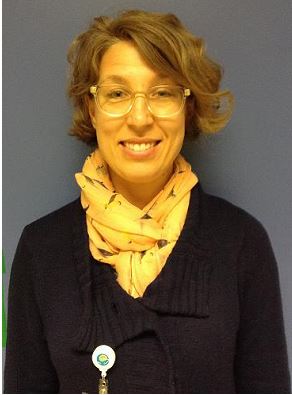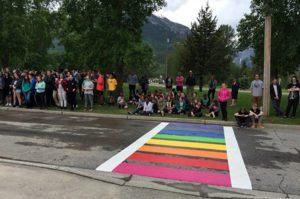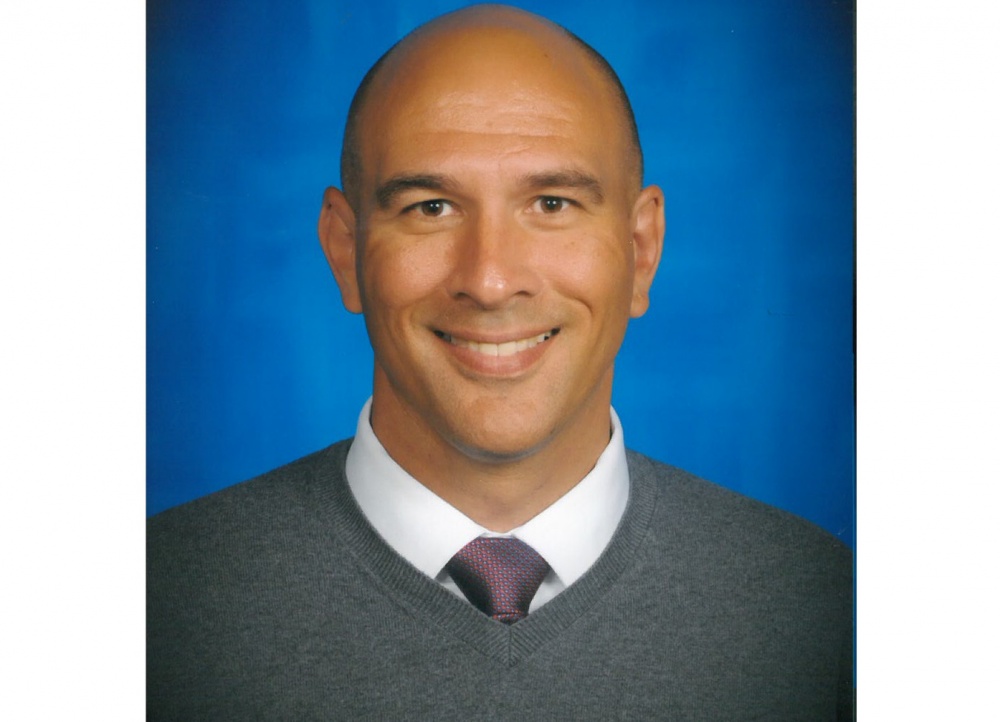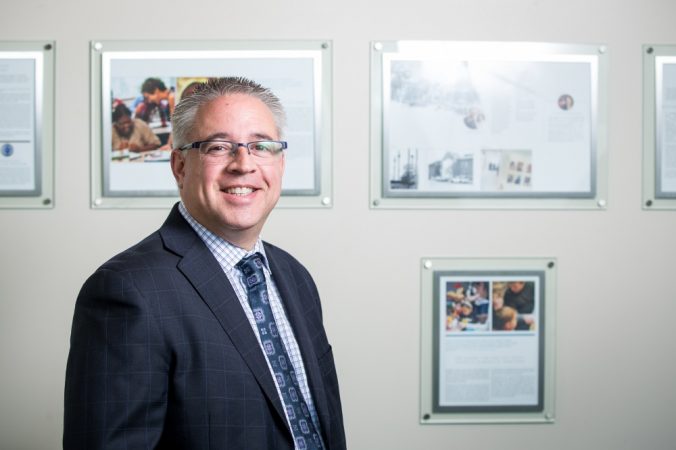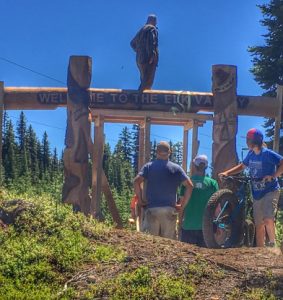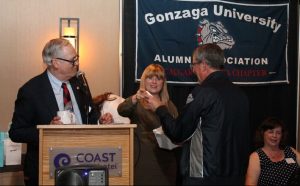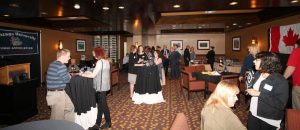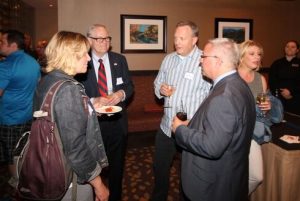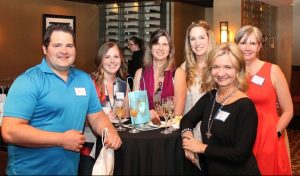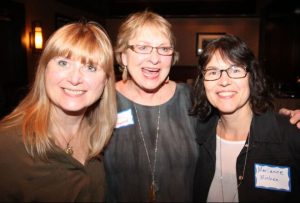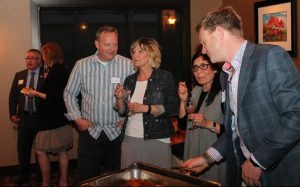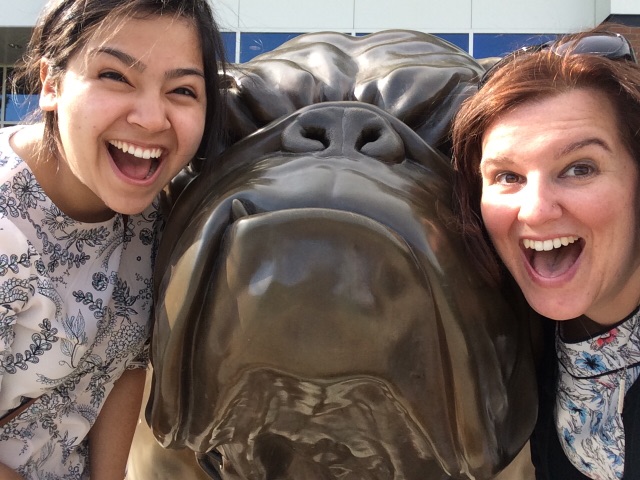This is the third and final part in a series featuring the value of a cohort-based approach to graduate education.
Dr. Elaine Radmer spent the last two years advising a group in Fernie, British Columbia. The Fernie cohort perfectly highlights the value of Gonzaga’s site-based approach. “All but one of the educators were from a single school district, but that district spans a number of communities,” Dr. Radmer wrote. “Geographically, they are spread along a single highway, but it takes almost two hours to travel between the outermost cities.” Candidates from the cohort have a story to tell about the way the program transformed their educational practices and philosophy.
- Penny did her capstone on improving the experience for athletes through recognition dinners and social media. This rejuvenated her passion for the role she plays as athletic director. On paper, it seems like a small part of her job, but in reality, it is a huge commitment. Her capstone work led to many more plans for improvement – coaching clinics, sports camps, etc… Additionally, in an effort to involve the community in sports programs, she created the first alumni basketball game, which has become a highly successful fundraiser.
- Jill continued her work as leader in school literacy goals, working on a collaborative literacy grant with colleagues. They implemented two school-wide initiatives. The first, “Storm Reads Challenge,” set a school wide goal of reading 500 books (which they exceeded) and featured grade level competitions (Grade 7 read more books than any other grade). The second, “Storm Reads Week,” saw every human in the school spend 15 minutes reading during an assigned time.
- Leanna implemented the “MindUp” program in Kindergarten/Grade 1 class. It is a social-emotional learning program to teach mindfulness and improve self-regulation. Their class made a Gratefulness tree bulletin board and invited anyone at the school to add a leaf so it would grow over time.
- Kathy has started to work with Grade 4 through Grade 6 students at her school to apply math in designing a garden housed at the school.
- Andrew started making movies to highlight student achievement. He started with his own classes, but now has a leadership role across the school — gathering videos and pictures and posting “highlight reels” on school websites.
- Renee is a Kindergarten teacher who is passionate about student activity levels. She developed and delivered materials to help kids at all grade levels understand options for being active at recess and expectations for their behavior (e.g., problem solving rather than fighting, etc.). Due to her efforts, kids became more active at recess and teachers reported fewer behavioral problems. She also implemented several other school-wide initiatives. She changed the volleyball approach to Triple Ball, which gives younger kids more chances to play and gain skills. To do this, she gained approvals from senior management, and then collaborated with a local college to provide training. Ultimately, she organized a district tournament that was a hit in the community. She also implemented a Golden Shoe challenge to inspire everyone to ride, bike, scooter, or walk to school.
- Ian created a collaborative, school-based team that launched an initiative to explore inter-curricular inquiry-driven projects. They changed the bell schedule to create “Inquiry Fridays” for project-based learning. On Fridays, three teachers from different subjects worked together on grade-wide inquiry teams. Ian’s background and expertise as an outdoor education instructor was helpful to support this initiative. In addition, Ian stepped into leadership by organizing activities: staff events, school-wide track-and-field event, and a field trip to Calgary for cultural experience for students in Social Studies and English.
- After deciding to commission an art piece as a focal point at the school’s entryway, Jane collaborated with the staff and allowed the plan to evolve until the artwork represented the recent combination of two schools into one. She raised over $3,000 for this project. The unveiling will be in the fall. She also wrote a grant for a collaborative project to build a greenhouse at their school. As an inquiry project, students filled out the permit application, drew up plans, and decided how to heat the greenhouse.
Check out our first post in this series: Alumni in Action: The Elk Valley Arch
Check out our second post in this series: Alumni in Action: The Rainbow Crosswalk Project
